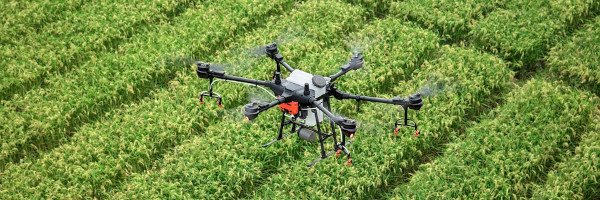Precision Farming
| Agriculture | |||||||||||||||||||||
|---|---|---|---|---|---|---|---|---|---|---|---|---|---|---|---|---|---|---|---|---|---|

| |||||||||||||||||||||
| Sectors | Rural Agriculture | ||||||||||||||||||||
| Contact | Josh Seidemann | ||||||||||||||||||||
| Topics | |||||||||||||||||||||
Activities
Press
| |||||||||||||||||||||
- Authors
Precision farming is a type of smart agriculture that uses technology such as GPS, sensors, and mapping tools to gather data on soil conditions, weather patterns, and crop growth. This data can then be used to make more informed decisions about planting, fertilization, and harvesting. The goal of precision farming is to increase yields while minimizing waste and environmental impact by applying inputs such as seeds, fertilizer, and pesticides at the right time and in the right amount. Precision farming can also include the use of precision farming equipment such as auto-steer tractors, yield monitors and variable rate application equipment which helps farmers to apply inputs in a more precise and efficient way. Overall, precision farming is a data-driven approach to farming that uses technology to optimize crop production and improve efficiency.
Technologies
Precision farming uses a variety of technologies, including:
- Geographic Location Systems: These technologies are used to map fields and track equipment in real-time, allowing farmers to precisely plan and execute planting and harvesting operations.
- Sensor Technology: Various types of sensors, such as soil moisture sensors and crop sensors, are used to collect data on soil conditions and crop growth, which can then be used to optimize irrigation and fertilization.
- Drones and aerial imaging: Drones equipped with cameras and other sensors are used to gather detailed information on crop health and growth, as well as to survey fields for pests and diseases.
- Variable rate technology: This technology allows farmers to apply inputs (such as fertilizer, seed, and pesticides) at different rates across a field, based on data gathered by sensors and other technologies.
- Automation and robotics: Automated tractors, self-driving vehicles and other forms of automation and robotics are increasingly being used in precision farming, allowing farmers to more efficiently and effectively manage their operations.
- Artificial Intelligence and Machine Learning: AI and ML are increasingly being used to analyze the data generated by precision farming technologies, to help farmers make more informed decisions and optimize their operations.




